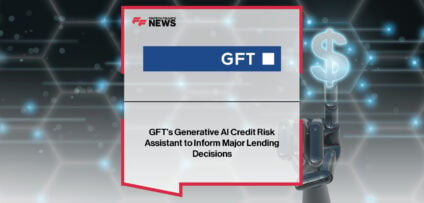Breaking News

Research Reveals Retailers Actively Leaking Customer and Credit Card Information Heading into Holiday Shopping Season
Arxan Technologies, the trusted provider of application protection solutions, is calling on eCommerce retailers to close security holes in their web applications after just 2.5 hours of initial research conducted by Aite Group uncovered more than 80 global eCommerce sites were actively being compromised by Magecart threat groups. Arxan commissioned the research report In Plain Sight II: On the Trail of Magecart, to examine tactics and techniques used by Magecart to compromise servers.
In 2018, Magecart groups made headlines as the threat actors responsible for high-profile mega-breaches of global brands including Ticketmaster, Forbes, British Airways, Newegg and more. “Magecart” is an umbrella term given to multiple threat groups that use credit card skimming technology to infect eCommerce platforms and websites with the goal of stealing personal and financial information — without being detected for months or even years at a time. Virtual credit card skimmers, also known as formjacking, are inserted into a web application, often the shopping cart, and are used to steal credit cards and customer information to sell on the black market and for shipping scams to traffic goods purchased with stolen cards.
“Once again we’re disappointed in what the research uncovered: the systemic lack of web-app protection being used by eCommerce websites and the inability of network and endpoint security solutions to completely protect consumers against this pervasive threat,” says Aaron Lint, Chief Scientist and VP of Research, Arxan. “The push toward a modern website user experience creates a lucrative attack surface inside the web content delivered via browser and mobile. Any interface which takes user input becomes a target for exfiltration. Additionally, the widespread use of third-party components has created a supply chain where an attacker can easily compromise thousands of sites with a mere few lines of code.”
As organizations continue to rely on revenue from eCommerce – estimates project the global market to hit more than $3.5 trillion in 2019[1] – the potential financial impact of Magecart is dire. The fallout from digital skimming breaches in 2018 cost organizations hundreds of millions of dollars in government penalties alone. Making matters worse, an estimated 20 percent of websites hit by Magecart become reinfected within five days of remediating the original problem[2]. It’s a bleak picture for an industry about to embark on the busiest shopping season of the year.
“The threat of formjacking is a widespread and growing problem. Because so many web applications are lacking in-app protection, adversaries are able to easily debug and read a web app’s JavaScript or HTML5 in plain text. Once the web app code is understood, malicious Javascript is then inserted into the web pages of target servers that deliver the web checkout form. Once weaponized, these credential pages will simultaneously send a consumer’s credit card information to an off-site server under the control of the Magecart group while also allowing the compromised site to process the credit card so the consumer and the organization are unaware of the theft,” says Alissa Knight, cybersecurity analyst for Aite Group and author of the In Plain Sight series of research. “It’s important to adopt solutions that implement multiple layers of security, such as detection of code tampering and analysis, active response that shuts a browser down upon detection of formjacking, along with threat detection and real-time alerting and response.”
To conduct this research, Ms. Knight used a source code search engine that scoured the web for obfuscated JavaScript that she found in repeating patterns of previously published Magecart breaches. Just 2.5 hours of initial research led to the discovery of over 80 compromised eCommerce sites globally that were actively sending credit card numbers to off-site servers under the control of the Magecart groups. The research showed that:
- The most common similarity across the 80 sites was the use of Magento, all of which are running old versions that are vulnerable to an unauthenticated upload and remote code execution vulnerability that has published exploits available for it;
- 100 percent of the 80 sites discovered had no in-app protection implemented, such as tamper detection and code obfuscation; and,
- 25 percent of the sites discovered were large, reputable brands.
To combat this growing threat, here are some steps that retailers and eCommerce organizations can take to protect their customers:
- Update or patch eCommerce platforms to the latest version
- Audit web code to ensure websites, including any third party apps, have not been compromised
- Implement a security solution that can provide alerts when suspicious activity targets web application code
To download the full research report, please visit: https://www.arxan.com/resources/download/plain-sight-trail-magecart
The report outlines: who the Magecart groups are, the tactics and techniques these groups use to compromise sites, how stolen credit cards are sold on the dark web, and how in-app protection that employs both code obfuscation and tamper detection can be used to defend against this type of threat.
EDITOR’S NOTE: Eighty compromised servers were analyzed as part of this research for companies in the United States, Canada, Europe, Latin America and Asia. Due to the discovery of actively compromised sites and servers, all affected organizations have been officially notified in cooperation with the FBI’s cyber division prior to the publishing of this report.
- Cheaper, Faster… Riskier: Over Half Of Brits Plan To Use ChatGPT For Completing Their Tax Returns Read more
- Tuum and Abwab.ai Partner to Deliver End-to-End SME Lending Solutions in the Middle East Read more
- Tuum Powers Bank CenterCredit’s Digital Transformation, Setting a Blueprint for BaaS and Core Modernization in Global Banking Read more
- GFT’s Generative AI Credit Risk Assistant to Inform Major Lending Decisions Read more
- Yuno Launches NOVA, AI Agents to Turn Payment Friction Into Growth; Merchants Recover Up To 75 Percent of Failed Transactions Read more










